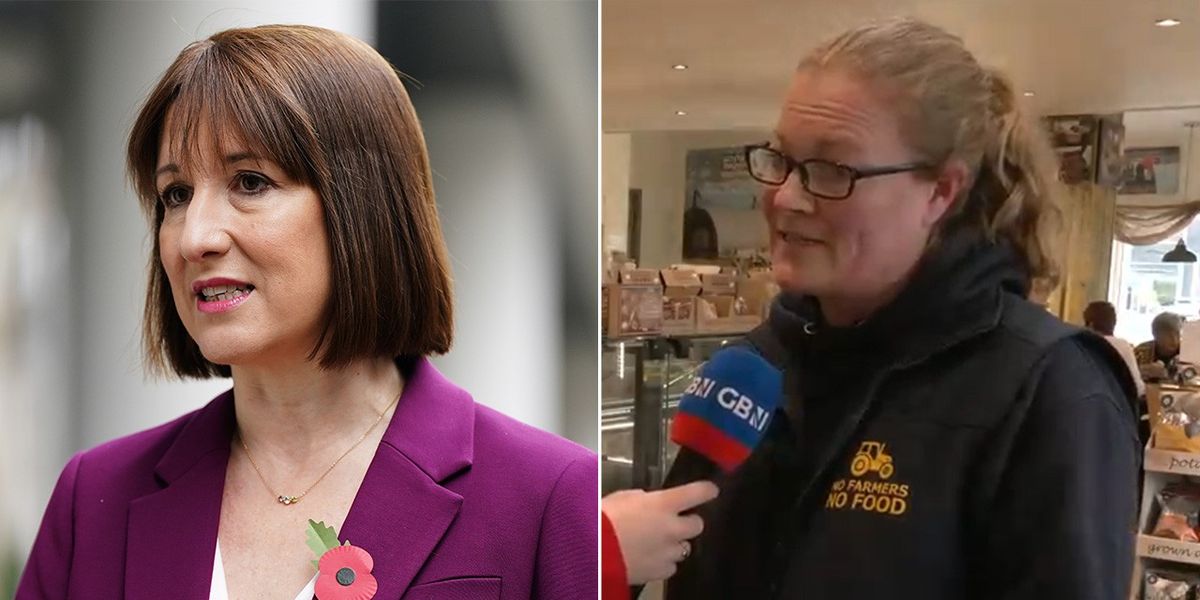A British pig farmer has warned that Labour’s inheritance tax raid on the agricultural industry could “hit Britons in the pocket” as the move could see food prices soar.
Chancellor Rachel Reeves has doubled down on her decision, citing the need to boost “public finances” as her reason for scrapping the tax release on farmers’ assets.
Ahead of a meeting with the Government today, President of the National Farmers’ Union (NFU) Tom Bradshaw stated that Labour have “misunderstood” how the change will impact farmers, and that they have made a “massive mistake”.
However, Reeves has claimed that it is “not affordable” for the Government to maintain the tax relief.
Rachel Reeves has sparked outrage amongst the agricultural industry following the announcement in Labour’s Budget
PA / GB News
Speaking to GB News, Yorkshire pig farmer Anna Longthorp voiced her concerns for future generations in farming, warning that it will “no longer be a viable business” in years to come.
Longthorp explained: “I’m just really concerned for the next generation now. The simple fact is that farmers need land to produce food. We need to invest heavily in kit and we need to be able to spread that overhead over a certain amount of land.
“Once you reduce the size of land that you have, it’s just not a viable business anymore. So we’re just really concerned about the next generation and basically just leaving them in debt and not being able to farm.”
Highlighting the “unique” business structure of farming and the industry, Longthorp stressed that farmers are “not in control” of profits and losses, and it is “not their fault” that land is ever-increasing in value.
NFU President Tom Bradshaw hit out at Labour’s ‘massive mistake’ in scrapping the tax relief
POOL
Longthorp told GB News: “Land is an asset, and has increased exponentially in value over the last half of many years. It’s not the farmers fault that land has increased in value.
“Farmers are quite unique in their businesses in that they don’t dictate the price that they receive for their products, the supply chain dictates what price they’re going to receive.
LATEST DEVELOPMENTS:
“Sometimes that might be above cost of production, a lot of the time it’s below the cost of production. So farmers aren’t in control over whether they’re making a profit or a loss.
Longthorp added: “We hope over time that the profits outweigh the losses, but it’s a long game, so what this means is that farmers are essentially asset rich but very cash poor.”
Issuing a warning for the future of the economy, Longthorp predicted that food prices could go up as a result of the tax raid, and if farmers are forced to sell land, property developers may purchase it to build on, taking away valuable farm land.
Longthorp told GB News: “The impact on consumers is it’s going to have an impact on food prices. The consumers are going to be hit in the pocket – it’s just such an ill-thought-out policy.
Farmer Anna Longthorp told GB News that food prices may go up as a result of the tax raid
GB News
“People are buying land to build on, it’s largely not farmers queuing up to buy more land. It’s going to be bought by property developers or corporations wanting to offset their carbon footprint.”
Expressing her concerns for the future, Longthorp concluded: “It’s not going to be used for food production, so it’s really risking our food security as a nation. The less food we produce, the more prices are going to go up for the consumer.
“But like I say, we’re cash poor, so the next generation are essentially going to have to sell off land to pay that tax bill.
“So the concern is now for the next generation – if they want to take on the family farm, they’re going to be struck with a massive inheritance tax bill because of the value of the asset.”

